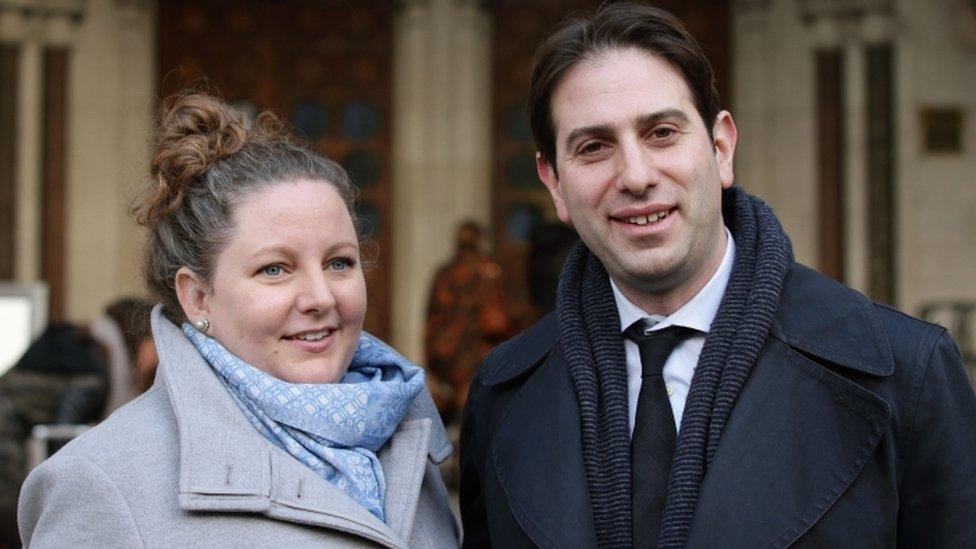'I don't': Why choose civil partnership over marriage?
- Published
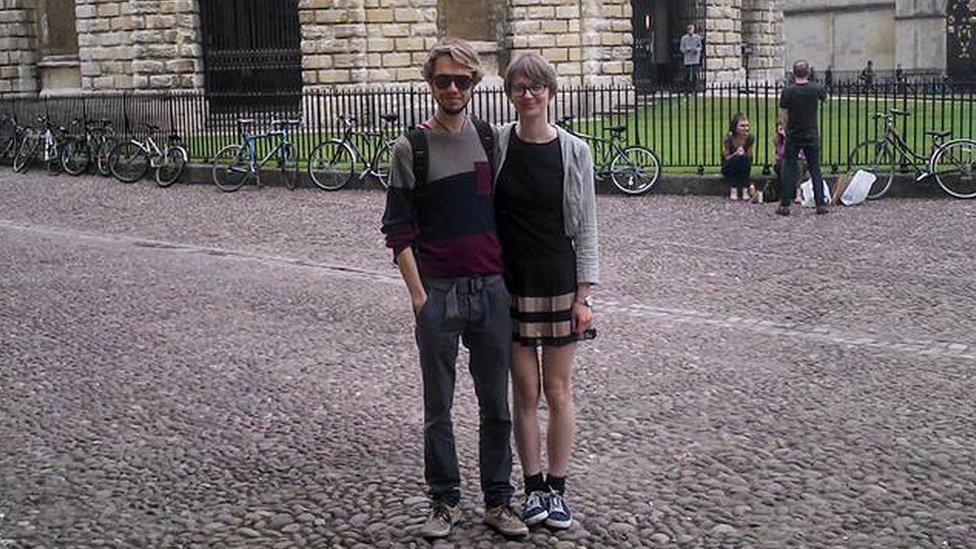
Matt Hawkins and Clare Phipps want a civil partnership
A heterosexual couple who want a civil partnership have taken their case to the Court of Appeal in an attempt to change the law. But with all couples now having the right to marry, why opt for civil partnership instead?
Clare Phipps and Matt Hawkins met at university in Oxford and have been together for eight-and-a-half years. Both 27, they live together in London now, but church bells won't be ringing any time soon.
"When we first got together we sort of knew this was going to be a long-lasting partnership," Clare explains.
"There are girls who grew up thinking about their wedding dress but I increasingly felt that outside of the fairytale of it all, that I do not feel like a wife. It just doesn't square with me."
Clare's partner Matt says he originally thought they would get married but then had "this realisation that there was another institution out there".
In 2005 the Civil Partnership Act came into force, allowing same-sex couples to get legal recognition for their relationships in England and Wales. As of March 2014, they were given the choice of a civil marriage too.
But for heterosexual couples, the only option to formalise their relationship remains marriage.
Matt says: "I want to have a way to formally recognise the partnership that I have and love. The other side is that we want financial and legal protection. There should be a way for couples like us to be able to get that without having to get married."

What is entailed in a civil partnership?
Legal and financial protection for both parties in the event of the relationship ending
It is free of the religious connotations of marriage
Some object to marriage as an institution and its associations with property and patriarchy

In October 2016, a heterosexual couple from London became the first in the UK to enter a civil partnership. Claire Beale, 49, and Martin Loat, 55, had to travel to the Isle of Man, which in July became the only part of the British Isles where both gay and straight couples can register civil partnerships.
One of the main incentives for unmarried couples is legal protection. There is no such thing as common law marriage, as family lawyer Lauren Evans of Kingsley Napley explains: "Couples who live together do not have the same protection or tax breaks as married couples.
"If you are a couple who are set against marriage, you are missing out and being discriminated against at the moment."
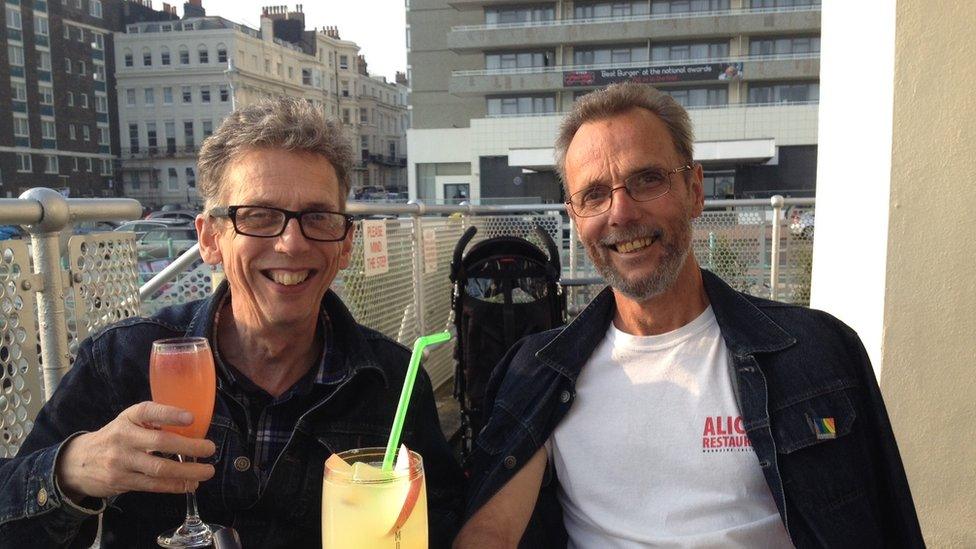
Peter Roscoe (L) and his partner Geoff Hardy (R) have decided not to convert their civil partnership to marriage
The number of civil partnerships a year has fallen from 5,646 in 2013 by 85% in the following two years, when gay marriage became legal. But, in 2015, there were still 861 couples who opted for civil partnerships over marriage.
Same-sex couples also have the option to convert their civil partnership to a marriage - 7,732 couples, external did this in the first six months following the law change.
But for some, civil partnership remains the preferred option. Peter Roscoe and his partner Geoff Hardy are from Shrewsbury and have been together almost 37 years. They entered a civil partnership at the first available date back in 2005, but they won't be converting to marriage.
"We have the same rights and obligations as a married person. The thing for us was to have equality in law; 2005 was really important for us," says Peter. "For both of us there's a bit of bad history with marriage. It was primarily created to confirm ownership and control... it wasn't about equal partnership."

How does same-sex marriage and civil partnership compare?
Equal legal treatment in matters including inheritance, tax, pensions and next-of-kin arrangements
Rules for a dissolution of a civil partnership are the same as those for marriage except adultery cannot be used as evidence
In a civil ceremony there is no requirement to exchange vows and while you can include readings, songs or music, there must be no religious component

The Peter Tatchell Foundation is among those supporting the Equal Civil Partnerships campaign.
Mr Tatchell says: "Civil partnerships for opposite-sex couples is a simple matter of ending discrimination and ensuring equality for all. In a democratic society, we are all supposed to be equal before the law."
Northern Ireland is currently the only place in the UK and Ireland that has not legalised same-sex marriage.
- Published20 October 2015
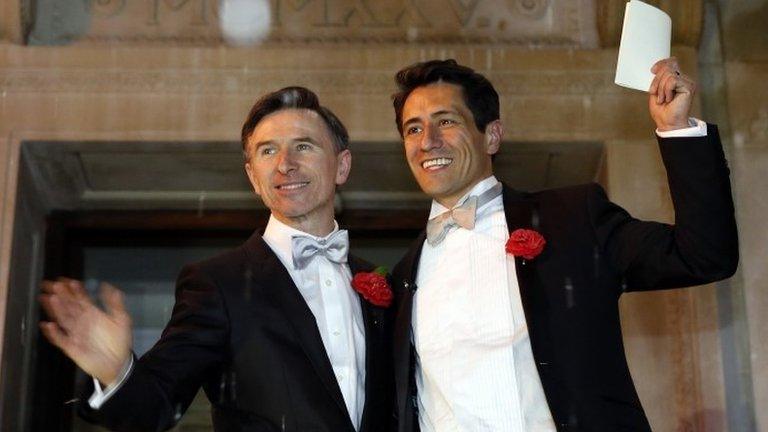
- Published29 January 2016
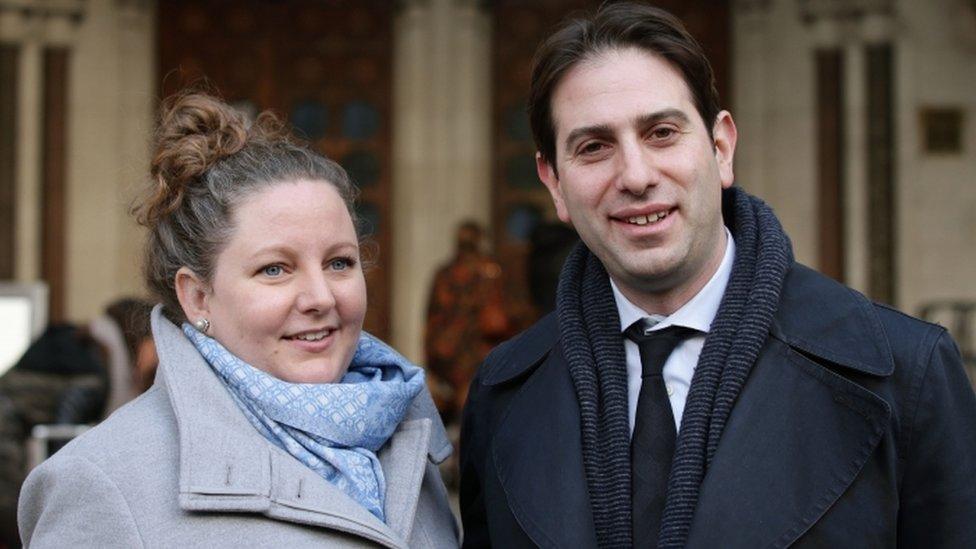
- Published19 January 2016
